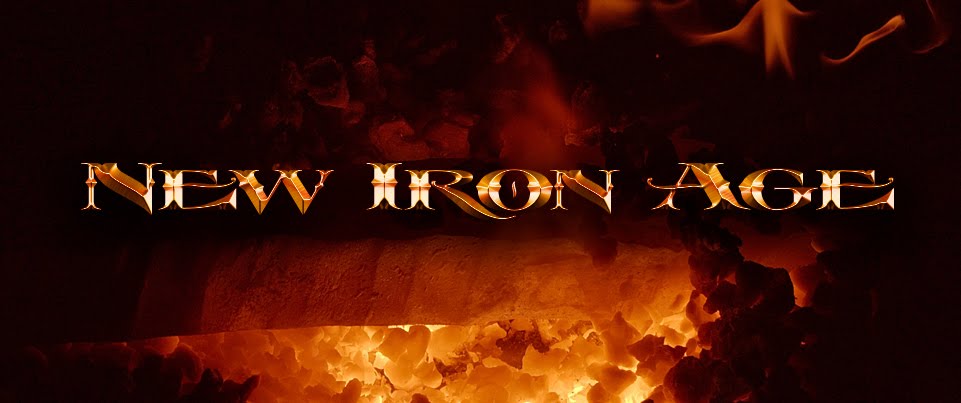There was a bit of a
buzz recently about Robert E. Howard, trying to argue that he was or
was not a Nazi, or would have/did sympathize with Nazi beliefs. The
argument is somewhat hamstrung because while Howard was alive when
Nazis existed in Europe, and he did go on record as condemning their
beliefs and activities, the man himself espoused views and political
stances that would be questionable at best in the modern world. He
was a primitivist, who held a great suspicion for civilized life and
yearned for an imaginary barbarian past, and he was also a racist,
born and raised in the heart of old Texas slave country.
But the larger
question here is less about Bob Howard, and more about the genre he
created and where it stands on that spectrum. There has been a
disturbing tendency in a lot of Sword & Sorcery fiction to fall
rather lazily into racist, fascist tropes. S&S often posits a
world of either imaginary or historically inaccurate racism and
sexism, worlds where everything is like Norway in the year 500 or in
an imaginary version of Rome that is somehow solely populated by
white people.
Some of this is the
fault of the poor state of historical education in this country, and
how thoroughly it has been compromised by racist fantasies. The late
19th and early 20th centuries were, after all,
the height of the scientific racist movement, when the superiority of
Europeans was more or less taken as a given by their descendents, and
many people who should have known better looked back toward a “pure”
state when their home countries were entirely inhabited by pink
humans.
So this idea, and
others, worked their way into the genre through cultural osmosis, and
as S&S is often a kind of time capsule, clinging to tropes and
ideas from almost a century ago, they have remained. The core of the
S&S fandom often seems to be politically reactionary: sexist,
racist, wishing for a time and place where men were men, women were
slaves, and brown people mostly existed to worship the wrong gods and
build empires for white barbarians to adventure in or take over.
Does it have to be
this way? After all, the rough and ready heroes of Sword &
Sorcery are not here to be sensitive, or to watch what they say.
They are here to ride, shoot straight, and speak the truth. They
solve problems with their axes and don’t care about your feelings.
But there is a world of difference between a character’s attitudes,
and the attitudes of the story itself. A barbarian can be
insensitive and reactionary, an author had bloody well not be.
I am not going to
stand up and argue that an S&S story should go ridiculously out
of its way to be inclusive, or that a sword-wielding adventurer must
stop the narrative to lecture on gay rights or feminism – that is
not what an S&S story is about, not where the focus is. That
would be a different kind of story altogether. But too many authors
have used the genre as a place where they can feel free to be
misogynistic or brutally racist and hide it behind the shield of
“that’s the way the world was back then” which is an argument
that falls apart under any sort of scrutiny at all. Historically
that is not supported, and in a fictional world, any element is there
because the author wants it there, not because it is “accurate”.
I feel like this is
an element of S&S that not only can change, but has to. The
genre is too often seen as a bastion of overgrown adolescents who
just want gore and tits, with no other redeeming qualities at all.
This backwards-compatibility with an earlier age of bigotry does it
no favors. If anything, an S&S world should be an utterly
egalitarian place, where what you are does not matter nearly as much
as what you do. In a world of violence and darkness, what matters
most about a person is how much ass they can kick, not what color
their own ass is, or how it looks in a thong. Howard himself was
grappling with this, and he often ascribed admirable traits to women
and dark-skinned people, even if he was unable to stop thinking of
them as fundamentally different. The fact that a Sword & Sorcery
story is in a genre that was invented 90 years ago does not give an
author a right to be a fossilized bastard.




